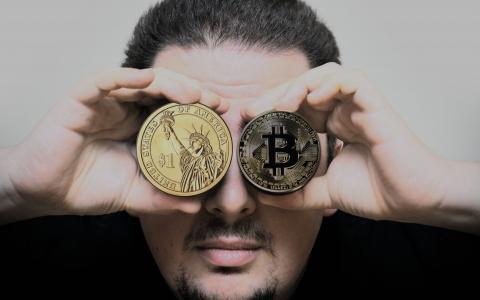
(Investopedia) - In a 2018 New York Times op-ed titled "Why I'm a Crypto Skeptic," crypto-skeptic Paul Krugman wrote:1
“What problem does this technology solve? What does it do that other, much cheaper and easier-to-use technologies can’t do just as well or better?” I still haven’t heard a clear answer."
The Nobel Prize-winning economist's sentiments haven't changed much since we first looked at the 2018 op-ed he filed from vacation in Europe, a result of his pondering of bitcoin and blockchain while "hiking and biking in various parts of Europe."
In 2018, he stated that it sets the monetary system back by 300 years, when gold was the primary form of exchange, and that there doesn't seem to be a clear upside to this regression. Krugman still makes the claim three years later:2
"even now Bitcoin and its relatives haven’t managed to achieve any meaningful economic role, what happens to their value is basically irrelevant to those of us not playing the crypto game."
KEY TAKEAWAYS
- Nobel laureate economist Paul Krugman has never been a fan of Bitcoin or cryptocurrency.
- Krugman's argument is that these digital tokens serve no economic purpose and that their valuation is tenuous.
- Whether or not Bitcoin is truly a bubble remains to be seen, but many prominent thinkers strongly disagree with Krugman's position.
Two Strikes Against Bitcoin?
Krugman describes two strikes against bitcoin: transaction costs and tethers.1
The first one is transaction costs. If we look at the history of money over time, there is a broad trend towards increasing convenience. Currencies have made transactions easier and cheaper over time.1
The transaction costs for gold are high because it's heavy and bulky and is considerably expensive to store. Fiat currencies incur lower, but still significant, transaction costs because they are paper-based. Subsequent shifts towards checks and credit and debit cards have further decreased the need and costs for paper-based currency. In turn, this has led to them being widely adopted by countries around the world. That they are widely accepted provides further impetus for their use. In contrast, bitcoin has significant transaction costs in the form of its energy requirements. It is also not widely accepted and that further increases the costs required to conduct practical commerce using bitcoin.1
The second strike against bitcoin is its lack of tethering capability. In practical terms, this means that there are no real backstops available to it as they are to paper money and gold. Government backing provides credibility to paper money. Gold has practical applications in jewelry and industry which provide “a weak but real tether to the real economy.” Because of its digital and stateless nature, bitcoin has neither a physical application nor a central authority to vouch for its status as a medium of exchange. “If speculators were to have a collective moment of doubt, suddenly fearing that Bitcoins were worthless, well, Bitcoins would become worthless,” writes Krugman.1
Bitcoin Is a Bubble?
To be sure, this is not the first time that Krugman has come out against bitcoin. Back in December 2017, when bitcoin prices were shooting to record highs, Krugman said that the cryptocurrency was an obvious bubble. He said its prices were going up because it was “some fancy technological thing that nobody really understands.” He argued in a similar manner in his more recent op-ed, saying that bitcoin had no backing or anchor. However, he said the bitcoin bubble could go on for a long time.13
He argued in a similar manner in his more recent May 2021 op-ed, reiterating that he believes the bitcoin bubble could go on for a long time, likening it to Bernie Madoff's ponzi scheme. The reason? Because ponzi schemes excel where there is a strong narrative, and Krugman believes that the "narrative" is where crypto "really excels"2
Investing in cryptocurrencies and other Initial Coin Offerings ("ICOs") is highly risky and speculative, and this article is not a recommendation by Investopedia or the writer to invest in cryptocurrencies or other ICOs. Since each individual's situation is unique, a qualified professional should always be consulted before making any financial decisions. Investopedia makes no representations or warranties as to the accuracy or timeliness of the information contained herein. As of the date this article was written, the author owns small amounts of bitcoin and litecoin.
Get Your Investing “Starter Kit”
Learn fundamental analysis strategies used by the most successful investors. This online course by Investopedia Academy is taught by a CFA and CMT charter holder and includes over 67 lessons of on-demand video, exercises, and interactive content. You’ll learn how to build an investment portfolio focused on creating real, long-term wealth and how to navigate Exchange Traded Funds, dividend stocks, and other trading instruments.
By RAKESH SHARMA
Reviewed by ERIKA RASURE
Fact checked by KIMBERLY OVERCAST
January 3, 2022



